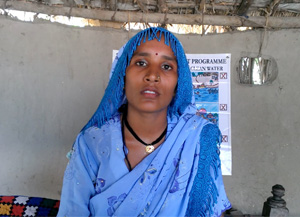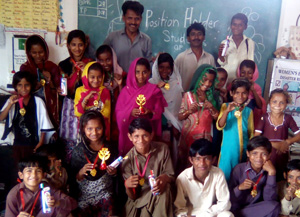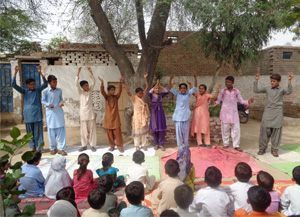13
Dec
Breaking taboo on education for girls
 Reema lives in Sindh, Pakistan, and is part of the Women's Empowerment Programme under the Primary Education Project (PEP). Her journey is a great testimony of how a village girl overcame deep-rooted prejudice against education for girls to become a role model herself.
Reema lives in Sindh, Pakistan, and is part of the Women's Empowerment Programme under the Primary Education Project (PEP). Her journey is a great testimony of how a village girl overcame deep-rooted prejudice against education for girls to become a role model herself.





